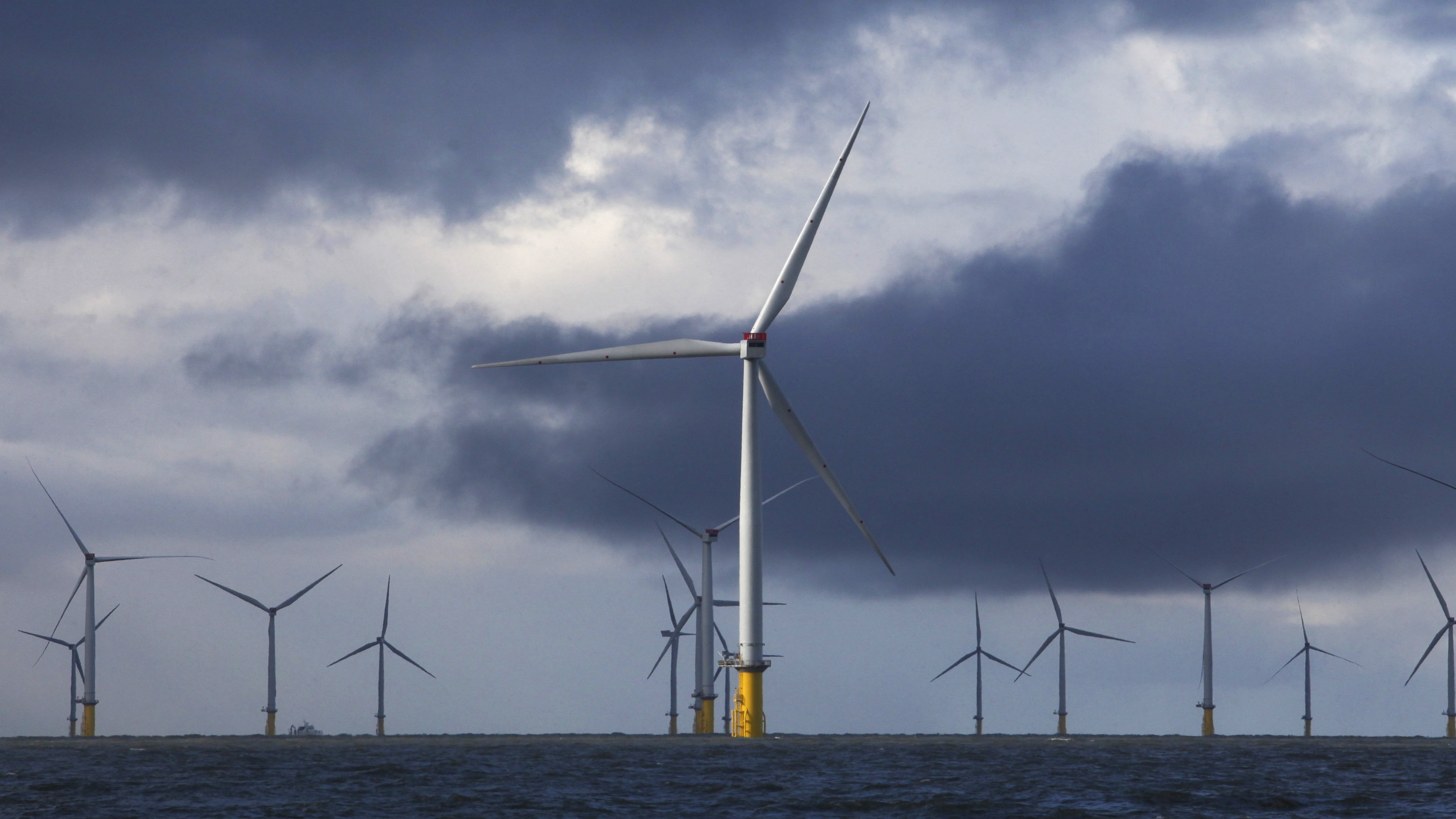Global stilling: where has all the wind gone?
Predicted 10% drop in average annual wind speeds by 2100 has serious implications for energy production

A free daily email with the biggest news stories of the day – and the best features from TheWeek.com
You are now subscribed
Your newsletter sign-up was successful
Britain’s wind turbines have ground to a near halt as western Europe faces the latest in a series of “wind droughts” that experts fear will become increasingly frequent.
Wind speeds in Scotland and the North Sea – where most of the UK’s wind turbines are located – aren’t expected to pick up until later this week. With Europe already facing an energy crisis, “the timing couldn’t have been worse”, said Sky News’s science correspondent Thomas Moore.
Britain’s gas power stations have been “ramped up” to cover the shortfall in the short term, he reported. Wind has produced 28% of UK electricity over the past year but yesterday generated just 3.4%, compared to 61% from gas power stations.
The Week
Escape your echo chamber. Get the facts behind the news, plus analysis from multiple perspectives.

Sign up for The Week's Free Newsletters
From our morning news briefing to a weekly Good News Newsletter, get the best of The Week delivered directly to your inbox.
From our morning news briefing to a weekly Good News Newsletter, get the best of The Week delivered directly to your inbox.
And with the country’s average wind speed expected to drop by 2% to 3% by 2050, Moore added, the “global stilling” poses a long-term threat to energy production, “because the UK is taking a big bet on wind”.
What did the papers say?
Europe and the UK also experienced a so-called wind drought in summer and autumn last year. Wind speeds slowed to “about 15% below the annual average” in some areas, and “the drop was even more pronounced” in others, said journalist and author Jim Robbins on Yale Environment 360.
Those months were among “the least windy periods in the United Kingdom in the past 60 years”, he wrote, and had a “dramatic” effect on power generation. Wind farms produced just 2% in September 2021, down from 18% year-on-year, forcing the country to “restart two mothballed coal plants”.
Some experts believe the decline in surface winds over Europe may be part of a long-term trend linked to climate change – although the extent and causes of changes to wind speeds remain a matter of debate.
A free daily email with the biggest news stories of the day – and the best features from TheWeek.com
“From 1978 until 2010, research showed a worldwide stilling of winds, with speeds dropping 2.3% per decade,” said Robbins. But research conducted in 2019 found that “after 2010, global average wind speeds had actually increased”, from 7mph to 7.4mph.
The Intergovernmental Panel on Climate Change has predicted that wind speeds will slow over the coming decades. Modelling by the UN body suggests that average annual wind speeds could drop by 10% by 2100.
If global stilling is happening, the phenomenon may be due to the Arctic “warming at a faster rate than equatorial regions, which means there is less difference in temperature between hot and cold areas”, wrote Hannah Bloomfield, a postdoctoral researcher in climate risk analytics at Bristol University, on The Conversation. “This temperature difference is what drives large-scale winds around the globe through a phenomenon called thermal wind balance,” she explained.
What next?
The UK and Europe are becoming increasingly reliant on wind power as part of the push to ditch coal and other fossil fuels.
The UK has a total of “14.2GW of onshore wind turbines, with another 13.7GW offshore”, said Moore on Sky News. And the government is aiming to increase offshore capacity “to 50GW by 2030, and to turn off gas and coal power stations by 2035”.
But “having the turbines doesn't make them turn – as we are finding out now”, Moore added.
Global stilling threatens to have a “massive” impact on alternative energy production, said Robbins on Yale Environment 360. Paul Williams, professor of atmospheric science at Reading University, told the online magazine that a 10% decline in wind speeds would result in 30% drop in energy extracted from wind turbines, “and that would be catastrophic” .
“Lazy winds” mean we can't rely on wind power alone as a source of renewable energy, said science commentator Anjana Ahuja in the Financial Times. Ahuja argued that to “future proof” our energy supply while meeting climate objectives, “diversifying supply, including wind, solar, geothermal and nuclear”, was vital. That includes “developing better storage options”; “applying long-term weather forecasting to the energy sector”; and building infrastructure such as “electricity interconnectors”.
“The spectre of wind droughts, which will also make heatwaves harder to bear, shows that no continent can fully insulate itself from the ill effects of climate change,” Ahuja concluded. “The symbols of global failure on this crisis multiply: the waist-deep flood, the perishing heatwave, the famine-inducing drought – and now the stilled wind turbine.”